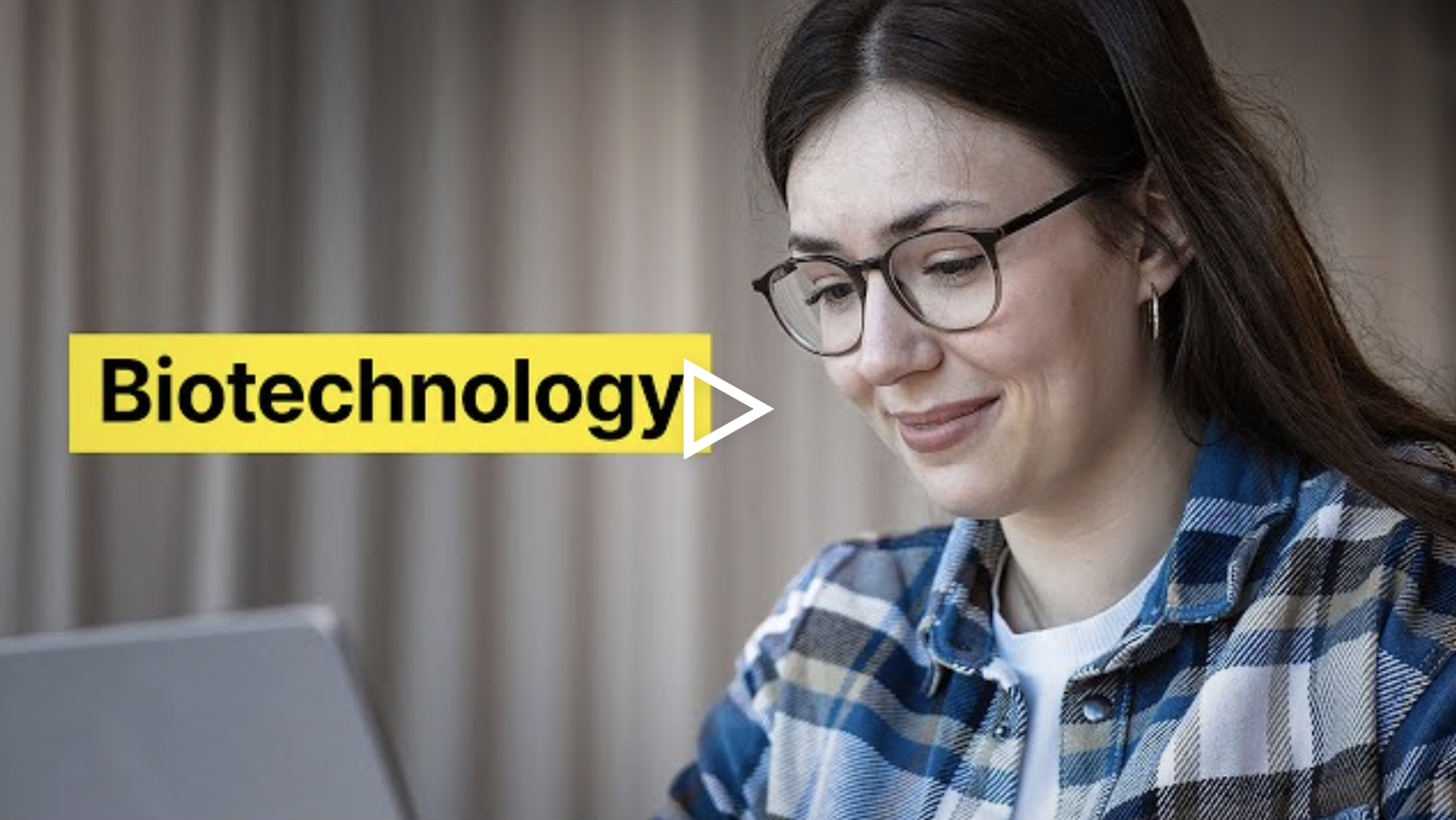MSc in Life Sciences - Biotechnology
Hochschule für Life Sciences FHNW
Do you want to develop innovative biotechnological processes, enable new medicines or design sustainable production processes? The Master’s degree in Biotechnology will deepen your scientific knowledge, sharpen your methodological skills, and prepare you for specialist and managerial roles in research and industry.

- Research-based and application-oriented: Benefit from practical training in state-of-the-art laboratories and work on real research and development projects.
- Individual specialisation: Enhance your expertise in fields such as molecular biotechnology, bioprocess engineering or bioinformatics and define your own focus areas.
- Career with prospects: Excellent preparation for demanding positions in biotechnology, the pharmaceutical sector and public research institutions.
- Flexible study modes: Choose full‑time or part‑time study to suit your situation.
- International opportunities: Earn a double degree at a partner university or complete your Master’s thesis abroad.
Steckbrief
Zukunftsaussichten
What career opportunities are open to you?
Biotechnology is an innovative and fast‑growing field. As a graduate, you will bring together expertise in science, automation, digitisation, data analysis and project management. These skills open up opportunities in research, development, production and marketing of biopharmaceutical products. Demand for well‑trained specialists is high and continues to grow.
Typical areas of employment for graduates are:
- Biopharmaceutical production: vaccines, therapeutic antibodies, viral vectors for gene therapies.
- Quality management and regulatory affairs: ensuring product quality and compliance with legal standards.
- Process development and optimisation: design of efficient and automated manufacturing processes.
- Data analysis and digitisation in the Life Sciences: evaluation of biological data and digital solutions in research and production.
- Technology transfer and product management: linking science and business to bring new biotechnology products to market.
Biotechnology products and technologies also open up new ways to treat complex diseases.
Aufbau und Inhalte
The programme offers rigorous scientific training directly linked to the challenges of biological therapies.
You will gain advanced knowledge in the following areas:
- Biopharmaceutical products: Science and technology of innovative medicines such as cell and gene therapies.
- Continuous bioprocesses: Efficient, automated production of biotechnological active ingredients.
- Process analytics and automation: Real‑time monitoring and control of bioprocesses with advanced technologies.
- Formulation and analytics of biologics: Stable formulations and analytical methods for quality assurance.
- Regulatory requirements: Approval principles and quality standards for biological medicines.
- Electives from related fields: Specialisation options in Analytical Chemistry, Bioanalytics, Applied Cell Biology or Pharma Technology.
In addition to the subject-specific content, interdisciplinary modules allow you to tailor your course of study individually. This will help you strengthen your skills in:
- Project management and academic work: Planning, implementation and communication of scientific projects in the biopharmaceutical environment.
- Innovation and interdisciplinary collaboration: Development of new solutions at the interface between science, technology and application.
Module Groups for the Biotechnology specialisation
A total of 50 ECTS credits (i.e. 17 modules each worth 3 ECTS credits) must be earned. Other modules can be selected: Module overview (English)
You can also plan your studies in advance with our MSc Life Sciences planning tool.
Details on the degree programme
Vertiefungen
International
Students can apply to obtain a double degree by completing an additional semester at the University of Chemistry and Technology, Prague (UCT). You may also complete the Master’s thesis abroad to gain international experience.
Further details are available from the International Office and here: Double Degree.
Leitung und Dozierende
Voraussetzungen, Zulassung, Eignungsabklärung
Direct admission requires
If you do not fully meet the requirements, you may be invited to a personal interview.
Proof of sufficient English skills must be provided with one of the following certificates:
If you are unable to provide evidence of the required command of English, you are obliged to improve it during the course of your master’s degree programme. You can either attend the advanced English course offered by the FHNW School of Life Sciences or other suitable language courses. At the end of the programme, proof must be provided that the required level of English has been achieved (see table above).
